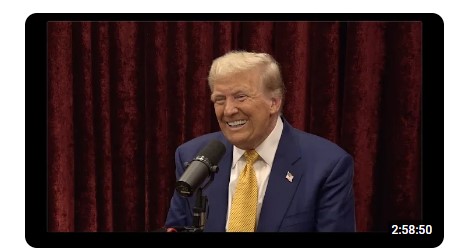Donald Trump’s recent victory in the White House is set to have substantial implications for antitrust regulation and U.S. policy towards the technology sector. This development arrives amidst ongoing Justice Department cases against tech giant Google. Trump’s previous criticisms of Google, alleging political bias and election interference, contrast with his recent reluctance to break up the company. Despite this, the Justice Department’s antitrust case against Google’s online search monopoly commenced during Trump’s first term.
- Shift in Antitrust Strategy: Trump’s presidency may soften the regulatory approach toward Big Tech, even as the Justice Department pursues antitrust cases against Google and potentially Apple, Meta, and Amazon. Trump’s influence could affect outcomes in these cases.
- High-Profile Tech Leaders’ Support: CEOs like Sundar Pichai and Tim Cook have expressed optimism for Trump’s term, highlighting potential collaboration amidst regulatory scrutiny, while Trump criticizes Europe’s fines against U.S. tech, signaling a possible shift in U.S. policy.
- Potential Regulatory Rollbacks: Trump’s plans to replace regulatory leaders, including FTC Chair Lina Khan, suggest a shift toward more business-friendly policies, especially in areas like AI, cryptocurrency, and Big Tech mergers.
- Musk’s Influence in a New Role: Trump has proposed Elon Musk to lead a commission focused on reducing federal spending and streamlining regulations, which may signal further deregulation benefiting tech companies.
Numerous tech CEOs, including Sundar Pichai of Google, congratulated Trump on his victory. Pichai noted the “golden age of American innovation” and expressed eagerness to collaborate with Trump’s administration. Under scrutiny are two major Justice Department cases involving Google, focusing on its online search and digital advertising monopolies. Additionally, the DOJ has a pending antitrust lawsuit against Apple and the Federal Trade Commission is suing Meta and Amazon.
In August, U.S. District Judge Amit Mehta ruled that Google holds an illegal monopoly over online search. The trial to determine remedies will extend into Trump’s first term, giving him and his appointees time to influence the Justice Department’s approach. William Kovacic, a former Federal Trade Commission chair, noted that Trump could control the disposition of the remedies phase. The DOJ recently suggested a potential forced selloff of parts of Google’s business.
Trump’s comments on Google and Apple during interviews indicate a complex relationship with these companies. He acknowledged calls from CEOs like Tim Cook of Apple, who reportedly complained about European fines. Trump’s criticism of the European Union’s regulatory enforcement against U.S. tech firms hints at a potential shift in U.S. policy.
Despite Trump’s seemingly conciliatory tone, Garrett Ventry, a former GOP House Judiciary staffer, expects a continued hardline stance against tech monopolies. Vice President-elect JD Vance, a known critic of Big Tech, supports this viewpoint. Trump has indicated skepticism about congressional efforts to divest or ban TikTok, currently entangled in federal court battles.
Trump’s presidency is anticipated to foster a looser regulatory environment for tech companies, including those led by Elon Musk. Musk, a significant Trump ally and donor, frequently complained about regulatory hurdles under the previous administration. Trump has proposed Musk to lead a “government efficiency commission,” aiming to reduce federal spending and regulations.
Trump’s administration is likely to see replacements at key regulatory positions, including FTC chair Lina Khan and SEC chair Gary Gensler. These changes could signal a shift towards business-friendly policies, affecting mergers, acquisitions, cryptocurrency, and artificial intelligence regulation.

